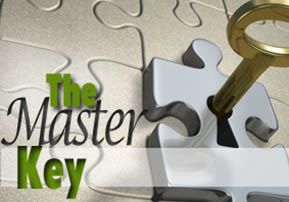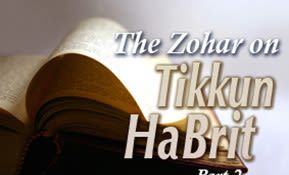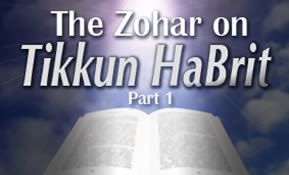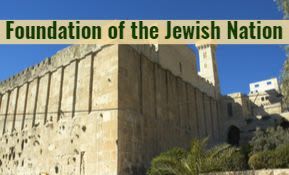
The Master Key to Israel
Why is there such an existential threat against the Jewish people in the Land of Israel today? Where’s Moshiach? There is a master key to unlock solutions...

Why is there such an existential threat against the Jewish people in the Land of Israel today, from all sides? Where’s Mashiach? The answer is amazingly simple: if the door to Geula – the full redemption of our people – is locked, then when need a master key to open it.
King David, Hashem’s anointed and forefather of Mashiach, possessed the key to the Land of Israel and to the true liberation of the Jewish nation. The key is a simple and unobtrusive passage in Psalm 37:19, “The righteous shall inherit the land,” referring of course to the Land of Israel. The Metzudat David explains (commentary on Isaiah 60:21) that the righteous will inherit the land because the evil will be wiped out during the tribulations directly before the arrival of Mashiach.
Who are the righteous that will inherit the Land of Israel? Rebbe Natan of Breslev answers according to the Zohar (see Likutei Halachot, Birkot HaTorah, A) that a righteous person is a shomer habrit, in other words one who fulfills the holy covenant and maintains personal holiness. We therefore see that if the righteous will inherit the land, and righteous means shomer habrit, then our future in the Land of Israel depends entirely on shmirat habrit, guarding our holy covenant with Hashem.
Rebbe Natan adds (ibid, Hilchot Seuda, D) that the principle mode of overcoming the obstacles that prevent us from assuming our hold on the Land of Israel is by learning Torah. Since shmirat habrit is prerequisite to Torah, then once again, personal holiness is the key to the Land of Israel. Without it, Israel’s holy doors slam shut in our faces.
With the above in mind, let’s take a close look about what happened throughout history in the city of Shechem, for as we’ll see, it plays a key role in the conquest of our God–given homeland and birthright.
When Yaacov Avinu (Jacob) returned from Laban’s estate in Padan Aram (today’s Syria), the first thing he did was to be a plot of land in Shechem. Our sages say (see Gemara tractate Shabbat 33b) that Yaacov Avinu was shalem, in other words, his Torah was unscathed and unblemished despite his many years in the midst his father-in-law Laban and the other evil foreigners. Why must we know this? Yaakov Avinu’s Torah learning and observance could not have been unscathed and unblemished without him meticulously guarding his personal holiness. He therefore was able to establish a foothold in the Land of Israel, and in Shechem particularly.
Why Shechem?
Yaacov Avinu undoubtedly learned from his holy grandfather Avraham (Abraham) that the city Shechem is the key to the entire Land of Israel. The holy Alshech explains (Alshech commentary on Breishit 12: 6-8) that Hashem waited until Avraham Avinu reached Shechem before He informed him that he would inherit the Land of Israel. Shechem – nestled in the narrow valley between Mount Gerizim and Mount Ibal – would be the place where the People of Israel would accept the Torah under a holy oath of blessings for those who guard and observe the Torah and curses for those who don’t (see Devarim 11:29-30). Shechem, with its potential for lofty holiness, was also the headquarters of the Canaanite nations and the worst forces of evil. Shechem therefore epitomizes the centuries-long struggle which is neither political nor military, but a spiritual battle between holiness and evil.
Yaacov Avinu (Jacob) is symbolic of holiness, as Rashi tells us (commentary on Bereishit 49:3) that he never spilled the tiniest drop of his seed in vain. Yaacov Avinu is therefore capable of wresting the Holy Land from the hands of the unholy. Subsequently, we learn that Joseph is the son who more than anyone else is the disciple of his father (see Onkolos on Breishit 37:3). Joseph devoted himself to learning his father’s wisdom. Like his father, Yoseph (Joesph) reached the highest level of shmirat habrit, or personal holiness, by withstanding the test of Potiphar’s wife. In esoteric terms, Joseph represents the sphere of Yesod, or foundation, which is personal holiness. Since holiness is the key to the Land of Israel, and Yoseph HaTzaddik represents holiness, we can now understand the Torah in a clear new light, namely, that Shechem was the center of trouble and strife both for Yaacov Avinu and for Yoseph.
Let’s slow things down and reiterate the chain of events that indicate the spiritually strategic importance of Shechem:
1. Avraham Avinu enters the Land of Israel, and when he reaches Shechem, Hashem promises him the Land of Israel
2. Yaacov Avinu, knowing that Shechem is the key to the redemption of the entire Land of Israel, buys a plot of land in Shechem and settles there when he returns from the house of Laban in Padam Aram. This plot of land, situated between Mount Gerizim and Mount Ibal, is the present gravesite of Yoseph HaTzaddik.
3. Evil forever opposes holiness: Shechem, prince of the Chivi Canaanite tribe (Chivi is Aramaic for snake, symbolic of the Yetzer Hara, or evil inclination), abducts Dina the daughter of Yaacov Avinu and rapes her.
4. Yaacov’s sons Shimon and Levi take avenge on their sister’s abduction and kill Shechem, his father, and their entire town. Yaacov Avinu gives his sons a protective spiritual umbrella (see Rashi and Onkeles on Breishit 48:22).
5. Shechem is the place where Yoseph is sold into slavery. Therefore, Shechem in effect marks the beginning of subsequent bondage in Egypt (see Rabbenu Bahiya on Breishit 37:14).
6. Yaacov Avinu bequeaths the city of Shechem especially to Yoseph (see Breishit 48:22 and Rashi’s commentary there), since he know’s that Yoseph’s holiness is required in order to hold to Shechem.
7. Just as Shechem is the key to the conquest and redemption of the Land of Israel, the opposite is also true: Shechem is a place of constant potential danger whenever Israel goes astray, for Shechem was the place where the Kingdom of David was split in the time of Yeravam (see Radak on Kings I, 12:1), in other words, the beginning of the Diaspora of the ten lost tribes.
Shechem is the snake that opposes holiness. Just as exile and Diaspora begin and Shechem, so do redemption and conquest. Just as the redemption of bondage in Egypt depended on taking Joseph’s tomb out of Egypt (which Moses did personally), our future redemption also depends on retaking Joseph’s tomb for alien hands.
We can now understand the long list of Israel’s troubles during the past decade (Israel’s hasty exit from South Lebanon in 2003 which led to the rise of the Hezbollah, Intifada, Disengagement in Gaza, the tragic Second Lebanon War, and now the ever-imminent existential threat not only from Iran, but from our neighbors who are being taken over by radical Islamic regimes one by one.
Yoseph and his holiness are the bone in the throat of evil. Our only chance of retaking Shechem and the Land of Israel is by strengthening our own personal measure of Yoseph – the sphere of Yesod and personal holiness. The future of Israel depends entirely on the shmirat habrit, the personal holiness of our men and the tzniut, the modesty of our women. This is the master key to the holy Land of Israel.







Tell us what you think!
Thank you for your comment!
It will be published after approval by the Editor.